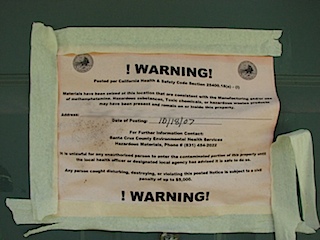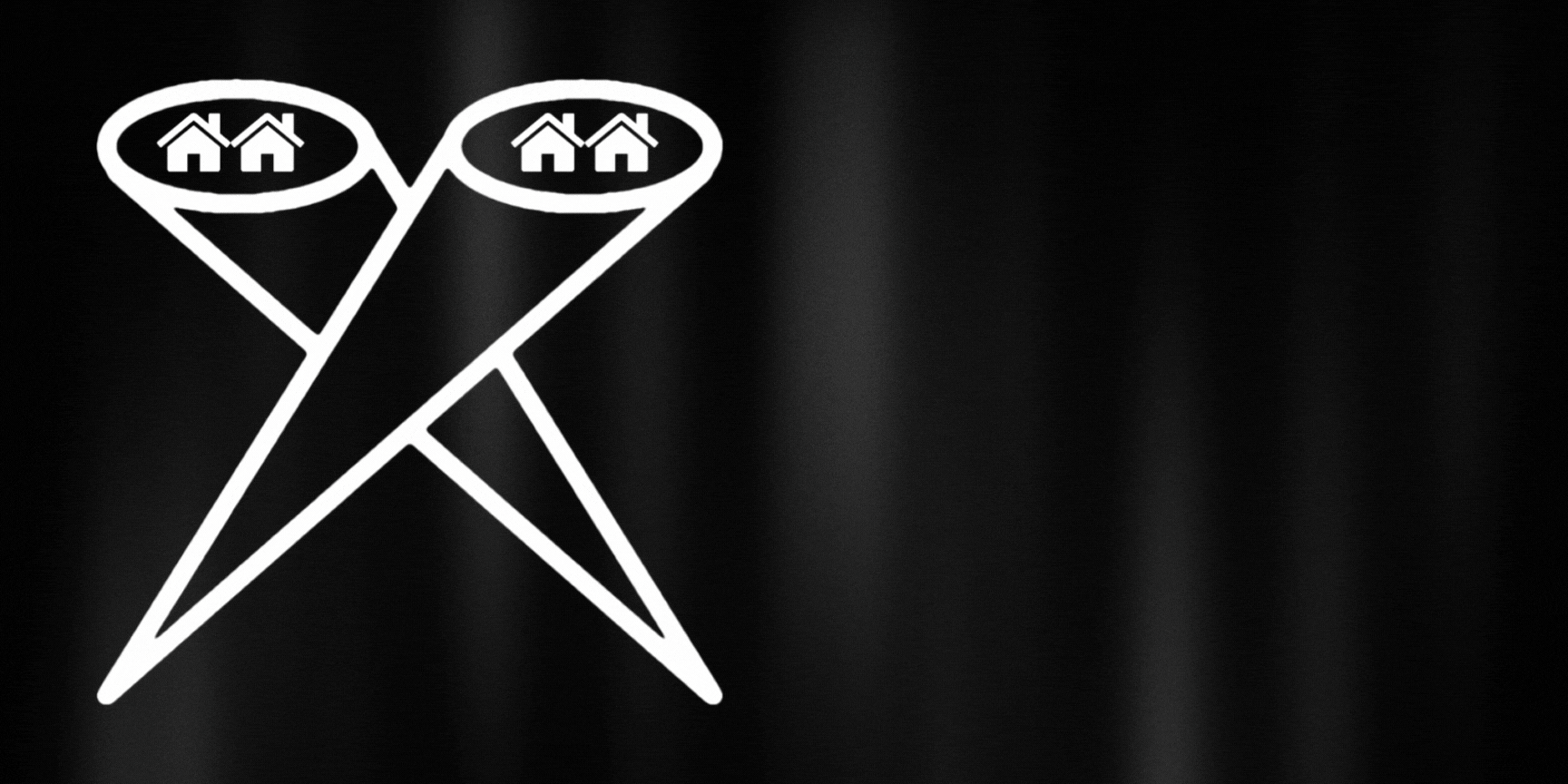I was out looking at some property today, and I noticed that a sign had been posted on one of the doors in the area. I’m always interested to see when signs are posted on people’s doors – it’s usually a notice that the home has been sold at a trustee’s sale, or there’s a “three day notice to quit” the property, or there’s going to be an auction of the property, something like that. But this notice was a little different.
It seems that some neighbor had been cookin’ up something a little less savory than a tasty Swanson’s Hungry Man!
This begs the question about disclosure, of course. There is, naturally, a requirement that the seller of residential property disclose to the buyer if the house has been cited as being a meth lab, to wit:
According to the “Methamphetamine Contaminated Property Cleanup Act of 2005” a property owner must disclose in writing to a prospective buyer if local health officials have issued an order prohibiting the use or occupancy of a property contaminated by meth lab activity. The owner must also give a copy of the pending order to the buyer to acknowledge receipt in writing. Failure to comply with these requirements may subject an owner to, among other things, a civil penalty up to $5,000. Aside from disclosure requirements, this new law also sets forth procedures for local authorities to deal with meth-contaminated properties, including the filing of a lien against a property until the owner cleans up the contamination or pays for the cleanup costs.
I wasn’t looking at the property with the meth notice, but I was looking at the one right next door. What are the seller’s obligations when it’s the neighbor who has been cooking up a little’ white cruch? “Hey, uh, before you buy my house, get a load of the sign on the one next door.”




